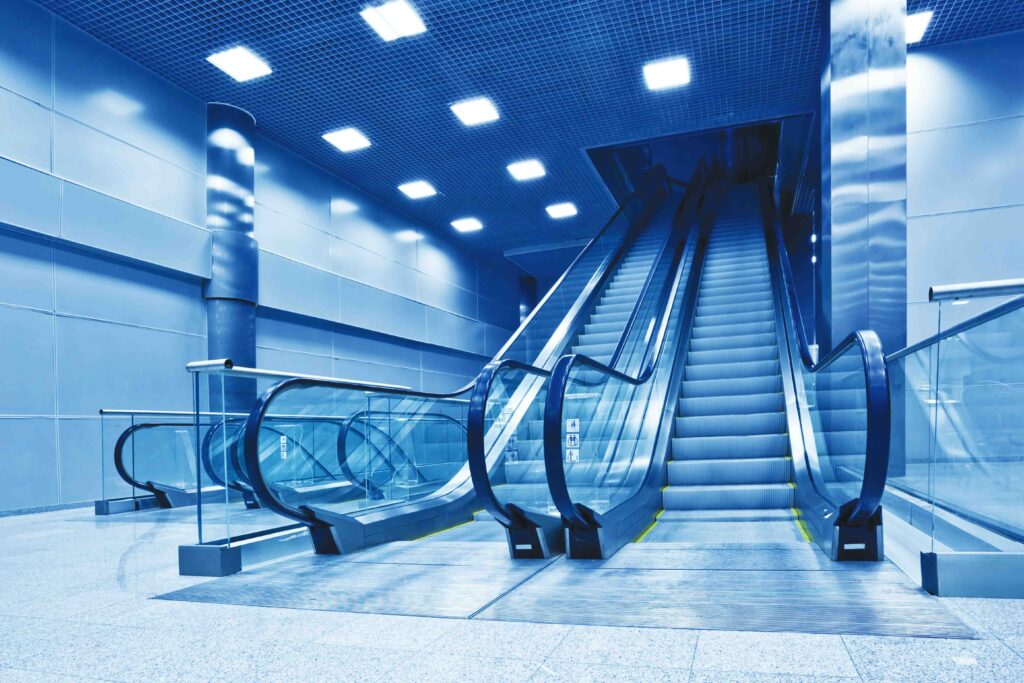
There is something about starting work at an office desk that no hybrid system can beat. It has its own satisfaction. In fact, editorial content can be written from the confines of a home too, but commuting to the office daily has its own routine charm, even if it involves a two-hour journey across 34km on broken highways or getting crammed into an overcrowded train during office hours.
It was after almost a decade that I started using the local trains in Mumbai again. The most encouraging part was using the escalators, which spared my knees from further strain. The process was simple: get a ticket, take the escalator, go down the stairs to the platform, and board the train. It takes me exactly an hour from leaving home to settling into my seat at the office. That is WOW!!!
After years of traveling on merciless roads, commuting by train is highly motivating.
On one bad leg day, as I entered the station, I started observing my surroundings, and the escalators left me exhilarated.
What if the escalators break down or stop working? Will I be able to take the stairs? NOOOO.
Currently 1,287 escalators are installed at 372 railway stations, with 1,144 installed between April 2014 and 2023, including 128 in 2023 alone. Ironically, some of the ones installed between 2014 and 2023 were in better condition than those installed in 2022-23. And the one I am using is from the 2022-23 lot!!
This escalator-elevator initiative is aligned with the government’s ‘Sugamya Bharat Mission’ or ‘Accessible India Campaign,’ focussing on easy movement for the elderly, sick, and differently abled individuals. While many of us with bad knees may not fall into these categories but we do need escalators to travel by trains.
Each of these escalators, costs in the range of Rs.1 crore each. A minimum of four to six have been installed in each station on the Western & Central lines at Mumbai.
Following some quick research and feedback on the social media, options from the cleaning industry including using specific cleaning chemicals, escalator cleaning machines, staircase cleaning brushes and more where suggested. What is built must be maintained is an old saying, and it applies to the multi-crore escalator properties at our railway stations.
But then, despite cleaning or even deep cleaning daily, keeping escalators and elevators clean will be challenging as almost three billion people commute on 3000 plus trains on the Mumbai Suburban Railways. When they litter continuously, no cleaning or facility management service provider can vouch to keep the escalators clean.
How do we stop people littering? A leading example to follow is the airports, where small restrictions put in place have made a lot of difference. Interestingly, one suggestion that was shared on the post seemed quite feasible.
The approach suggested by Karsten Kambach, Head of Sales at TK Elevator in Germany: “The escalator steps can be equipped with safety signage on their front, making passengers aware of the right behaviour on escalators.”
Besides the fact that with this information safety for passengers can be increased, they also consciously and unconsciously remind them to not spill drinks or drop wastepaper on the machines. Ultimately, escalators are installed for the benefit of the users. Hence, it should be in their interest also to keep them in good and clean working conditions.
Karsten mentions that several main metro operations in Europe are installing such safety signs. “As the signage is available in any design, customizable with clients’ logos and local language, and for any escalator brand, there is a good opportunity to improve the appearance of the escalators.”
Could this option prevent people from littering?
Mohana M
Editor-Clean India Journal







